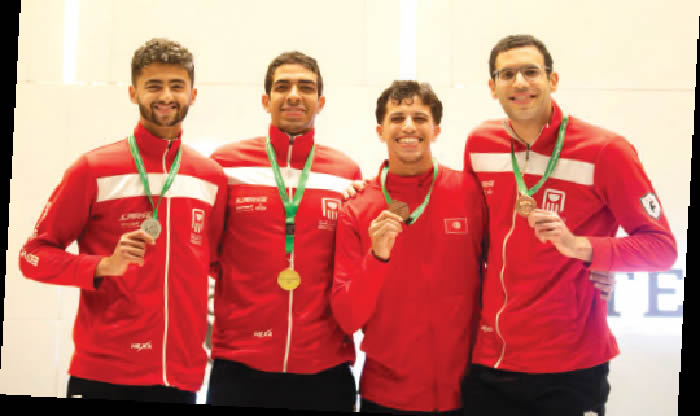The 23rd African Fencing Championships, held at Charterhouse, Lagos, witnessed the continued dominance of Egypt, a nation renowned for its prowess in the sport. The Egyptians showcased their exceptional skill and strategic acumen, capturing five out of the six individual gold medals contested. This impressive feat solidified their position as the leading fencing nation on the African continent, leaving other competing nations vying for the remaining scraps of glory. The championships served as a stage for the Egyptians to reaffirm their fencing supremacy, leaving an indelible mark on the tournament. Their athletes displayed not only technical mastery but also a fierce competitive spirit, driving them to victory in multiple disciplines.
The Egyptian dominance unfolded systematically over the course of the championship. The initial days saw them secure three gold medals, setting a formidable pace that other nations struggled to match. This early success provided a powerful momentum, bolstering the confidence of the Egyptian team and placing significant pressure on their competitors. The victories were not merely individual triumphs but a testament to the strength and depth of the Egyptian fencing program, reflecting years of dedicated training and strategic development. This established foundation enabled them to consistently produce athletes capable of competing at the highest level and securing podium finishes.
The culmination of Egypt’s success arrived with two additional gold medals secured on Friday. Abdelrahman Tolba clinched victory in the men’s foil event, while Alanoud Hegazy triumphed in the women’s sabre competition. Tolba’s win was a culmination of years of persistent effort, having previously earned bronze in 2023 and silver in 2024. His journey to gold was a testament to his unwavering dedication and improvement, finally reaching the pinnacle of his sport. Hegazy’s victory marked her first continental title, a significant milestone in her career and a testament to her talent and potential. Both victories further solidified Egypt’s dominance in the championships.
Despite Egypt’s near-total dominance, Kenya’s Alexandra Ndolo provided a compelling counterpoint, preventing a complete Egyptian sweep of the individual gold medals. Ndolo showcased her exceptional skill and determination, capturing gold in the women’s épée event. Her victory over Egypt’s Shirwit Gaber was a decisive one, with a final score of 15-8. Ndolo’s performance was a highlight of the championships, demonstrating that even in the face of overwhelming dominance, individual brilliance and strategic excellence can prevail. Her gold medal was a source of national pride for Kenya and a reminder that the competitive landscape of African fencing is not entirely monolithic.
The individual victories served as a prelude to the team events, scheduled for Saturday and the final day, June 29th. The Egyptian team, buoyed by their individual successes, entered these competitions as the clear favorites. Their consistent performance throughout the individual events had established them as the team to beat, creating a sense of anticipation and excitement for the upcoming team competitions. The other participating nations faced the daunting task of challenging Egypt’s supremacy, requiring not only individual skill but also effective teamwork and strategic coordination. The stage was set for a thrilling conclusion to the championships, with all eyes on Egypt to see if they could maintain their impressive form.
The 23rd African Fencing Championships not only showcased the continued dominance of Egypt but also highlighted the emerging talent and competitive spirit of other African nations. While Egypt’s five gold medals solidified their position at the top of African fencing, the performances of athletes like Alexandra Ndolo offered a glimpse into the potential for future challenges to their hegemony. The championships underscored the growth and development of fencing across the continent, promising exciting future competitions and the potential for shifting power dynamics in the years to come. The event served as a platform for athletes to showcase their skills, gain valuable experience, and contribute to the ongoing evolution of African fencing.


